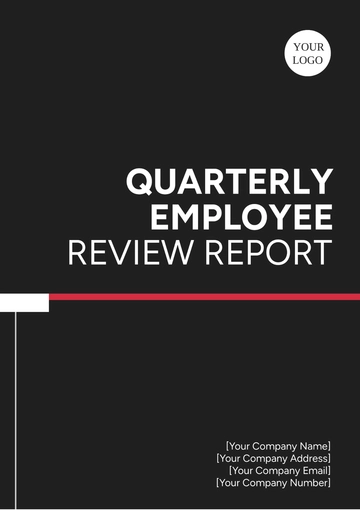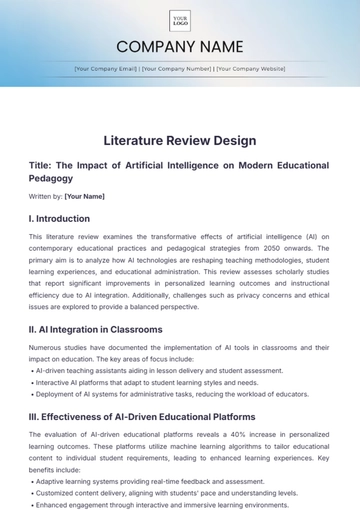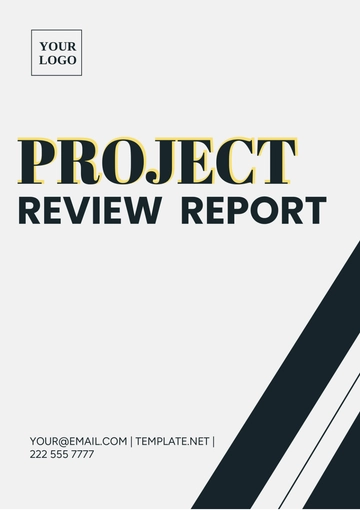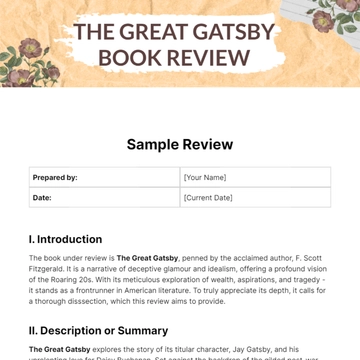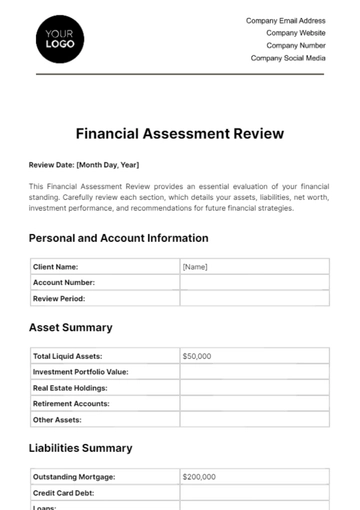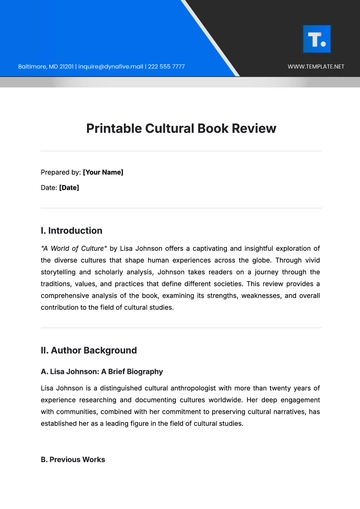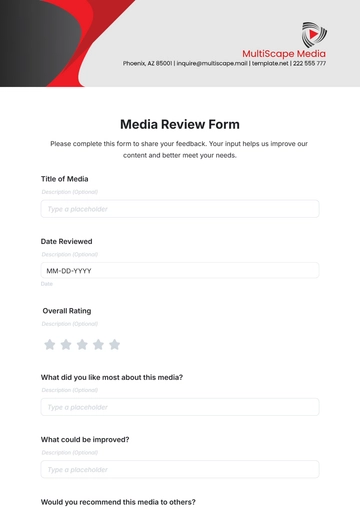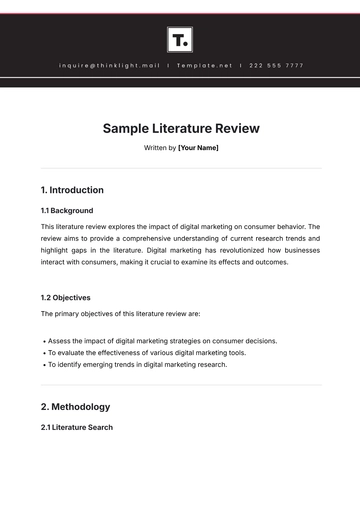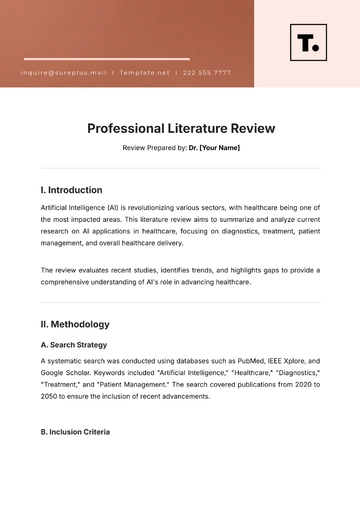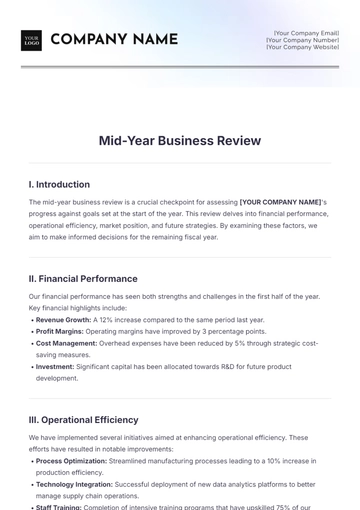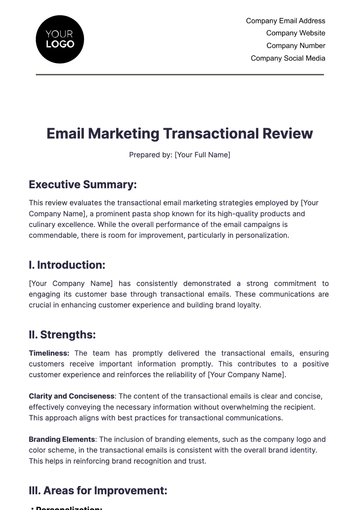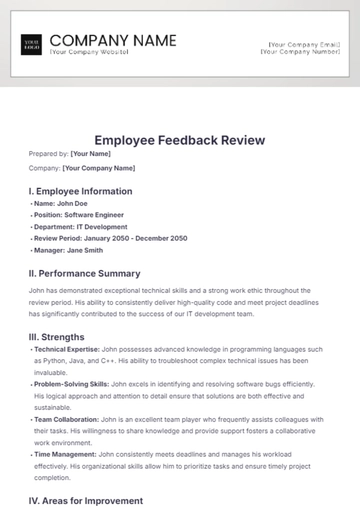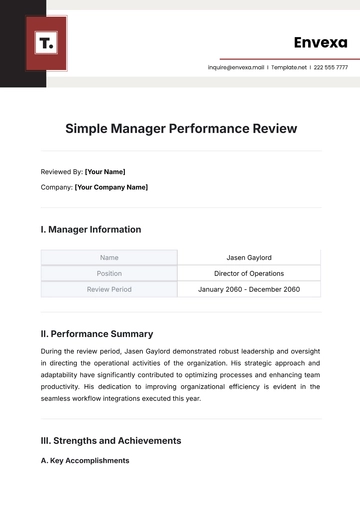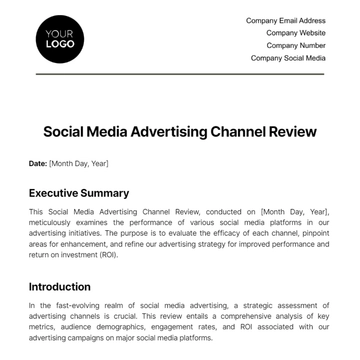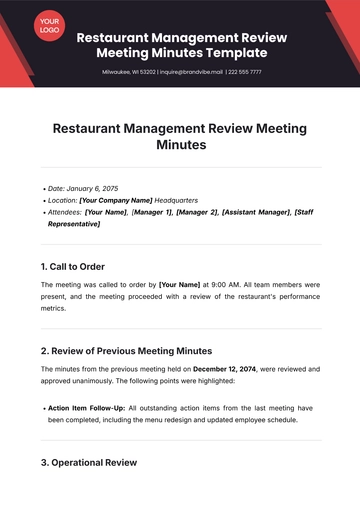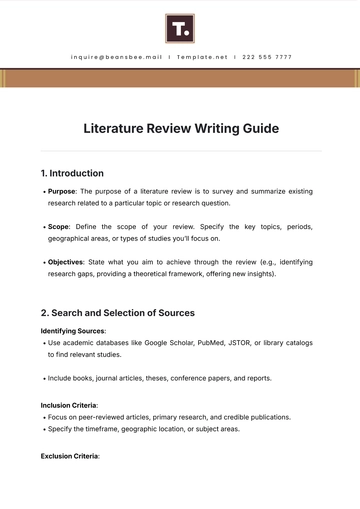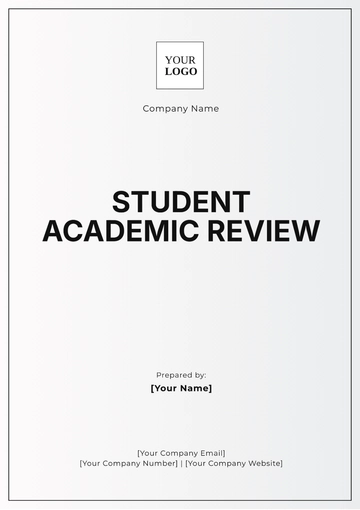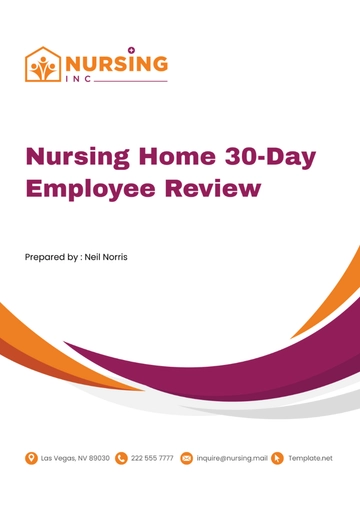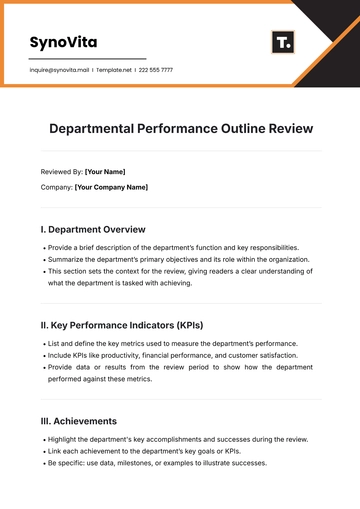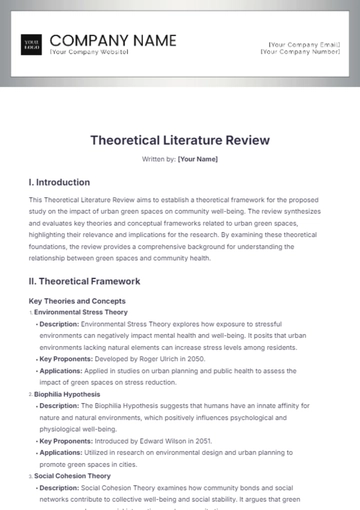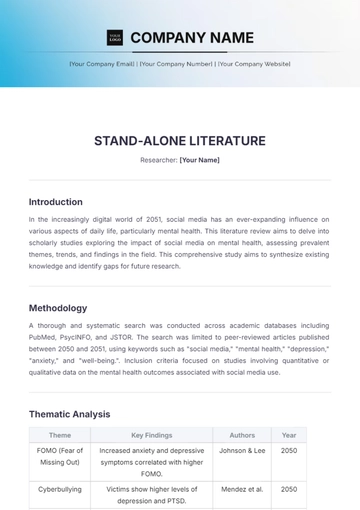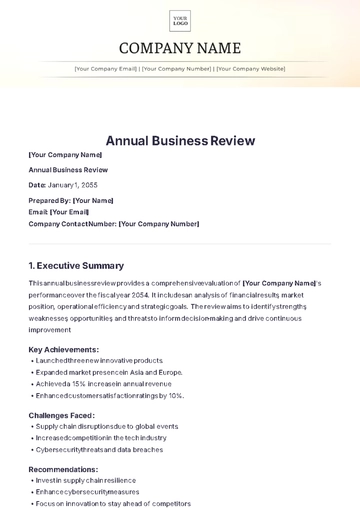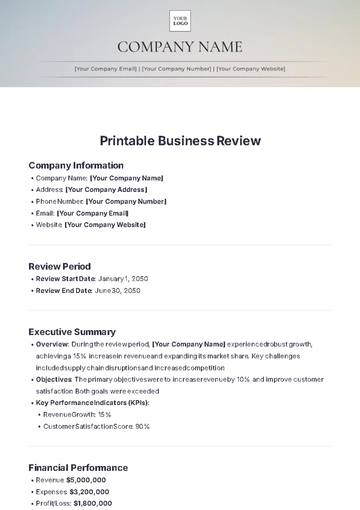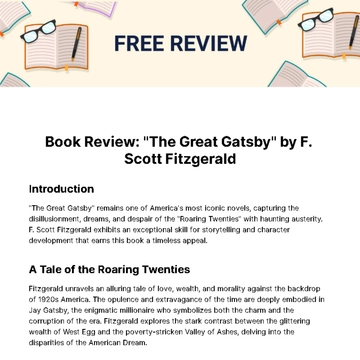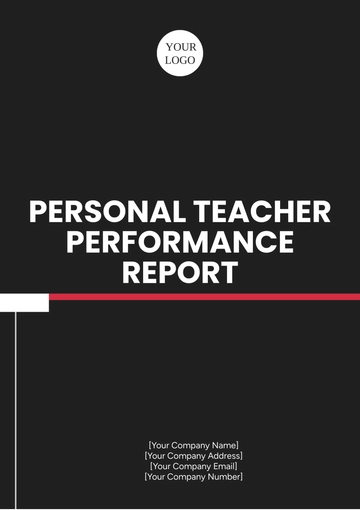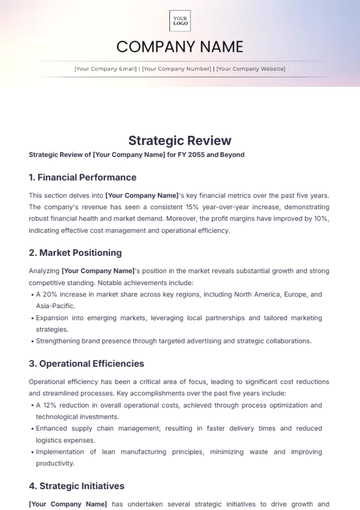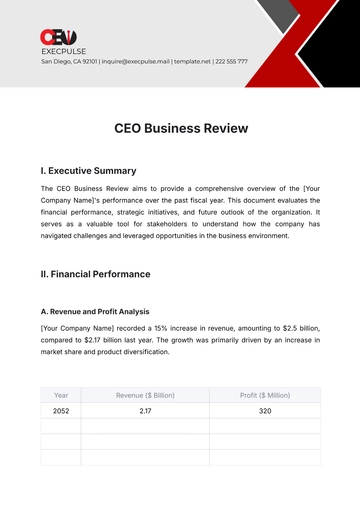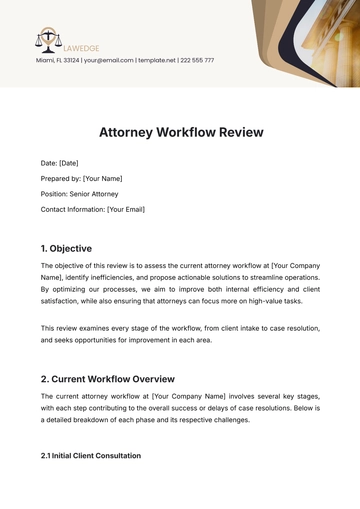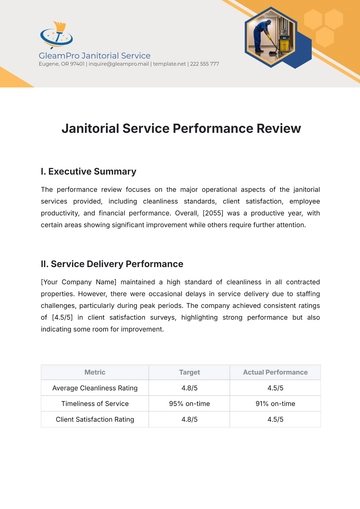Free Stand-Alone Literature Review
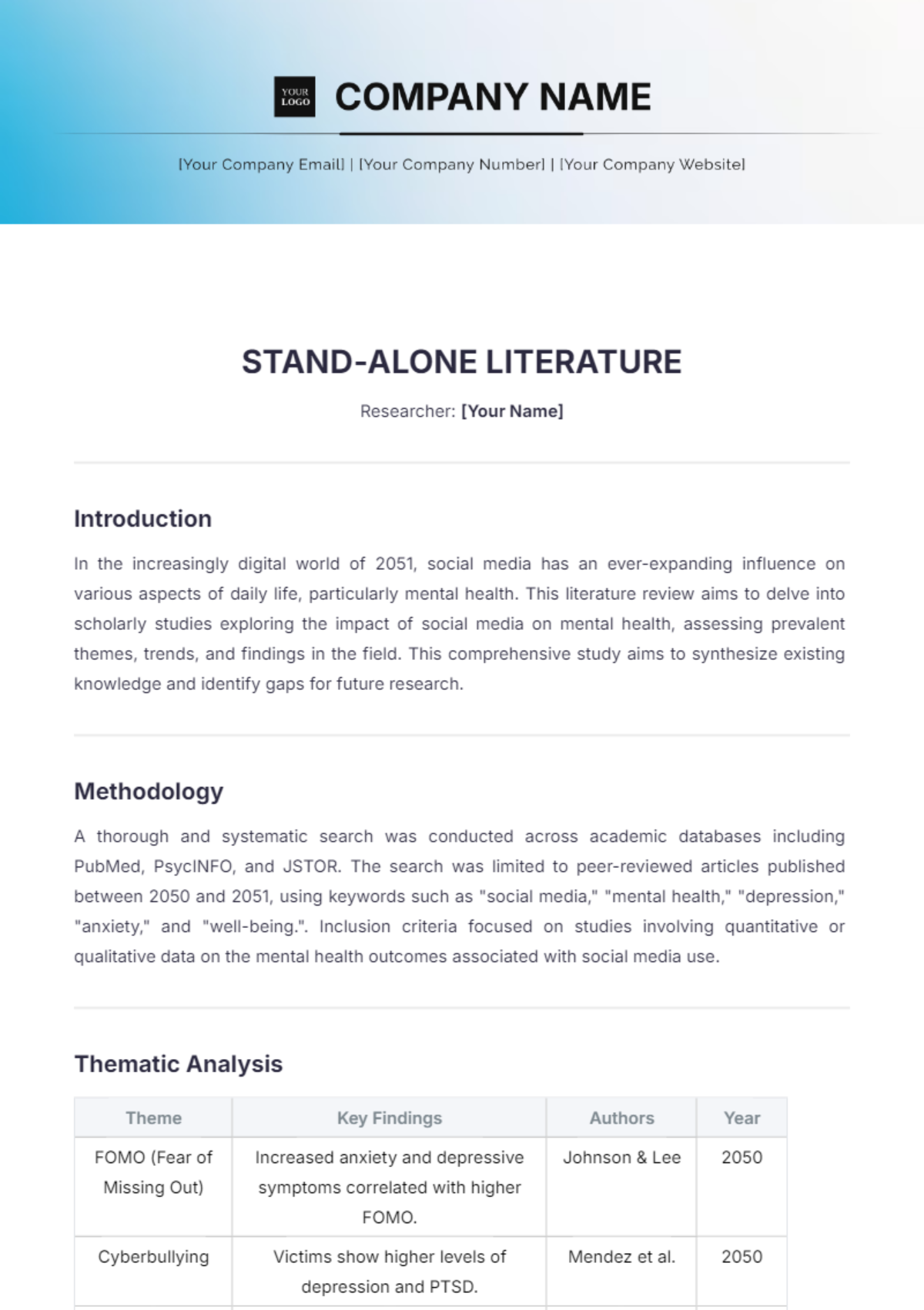
Researcher: [Your Name]
Introduction
In the increasingly digital world of 2051, social media has an ever-expanding influence on various aspects of daily life, particularly mental health. This literature review aims to delve into scholarly studies exploring the impact of social media on mental health, assessing prevalent themes, trends, and findings in the field. This comprehensive study aims to synthesize existing knowledge and identify gaps for future research.
Methodology
A thorough and systematic search was conducted across academic databases including PubMed, PsycINFO, and JSTOR. The search was limited to peer-reviewed articles published between 2050 and 2051, using keywords such as "social media," "mental health," "depression," "anxiety," and "well-being.". Inclusion criteria focused on studies involving quantitative or qualitative data on the mental health outcomes associated with social media use.
Thematic Analysis
Theme | Key Findings | Authors | Year |
|---|---|---|---|
FOMO (Fear of Missing Out) | Increased anxiety and depressive symptoms correlated with higher FOMO. | Johnson & Lee | 2050 |
Cyberbullying | Victims show higher levels of depression and PTSD. | Mendez et al. | 2050 |
Body Image | Negative body image and lower self-esteem in frequent users. | Smith & Gonzales | 2051 |
Social Connectivity | Increased perceived social support and reduced feelings of isolation. | Clark & Nguyen | 2050 |
Screen Time | More screen time is linked to higher rates of anxiety and sleep disruption. | Awash & Kaur | 2050 |
Exploring FOMO's impact on mental health, cyberbullying's effect on adolescents, social media's influence on body image and self-esteem, its role in creating supportive communities, and the correlation between screen time and mental health.
Discussion
Component | Observations | Implications |
|---|---|---|
FOMO | Consistent presence in adolescents and young adults. | Need for interventions targeting social media habits. |
Cyberbullying | Significant mental health detriments were observed. | Implementing robust anti-cyberbullying policies. |
Body Image | Widespread negative impact on self-esteem. | Promotion of body positivity movements. |
Social Connectivity | Enhanced support through online communities. | Leveraging social media for mental health support. |
Screen Time | Direct correlation with poor mental health. | Guidelines on healthy screen time usage. |
A review of longitudinal studies highlights the effectiveness of anti-bullying programs and body image interventions, explores social media as a therapeutic tool, and investigates strategies for reducing screen time.
Conclusion
The literature on social media's impact on mental health is extensive, highlighting numerous adverse effects such as anxiety, depression, and negative body image, as well as potential benefits in social connectivity. Further research is required to develop effective interventions and policies that mitigate the negative effects while capitalizing on the positive aspects. The integration of robust methodologies and inclusion of diverse populations will be crucial in future studies to derive comprehensive insights into this rapidly evolving field.
References
Johnson, T., & Lee, H. (2050). The Psychological Effects of FOMO in the Age of Social Media. Journal of Digital Mental Health, 12(3), 256-271.
Mendez, R., Alvarez, P., & Thompson, S. (2050). Cyberbullying and Adolescent Mental Health: A Review. International Journal of Adolescent Psychology, 14(2), 142-159.
Smith, A., & Gonzales, M. (2051). Social Media's Influence on Body Image and Self-Esteem. Journal of Social Psychology, 18(1), 78-93.
Clark, J., & Nguyen, L. (2050). Building Social Connectivity through Online Communities. Mental Health & Society, 15(4), 497-512.
Awash, D., & Kaur, R. (2050). Screen Time and Mental Health: Investigating the Correlation. Journal of Behavioral Sciences, 22(2), 210-225.
- 100% Customizable, free editor
- Access 1 Million+ Templates, photo’s & graphics
- Download or share as a template
- Click and replace photos, graphics, text, backgrounds
- Resize, crop, AI write & more
- Access advanced editor
Introducing the Stand-Alone Literature Review Template from Template.net. This fully editable and customizable template simplifies your review process with a professional structure. Easily modify content using our AI Editor Tool for a personalized touch. Perfect for researchers, students, and academics, it ensures a streamlined and efficient literature review experience. Elevate your work with this versatile and intuitive template.
